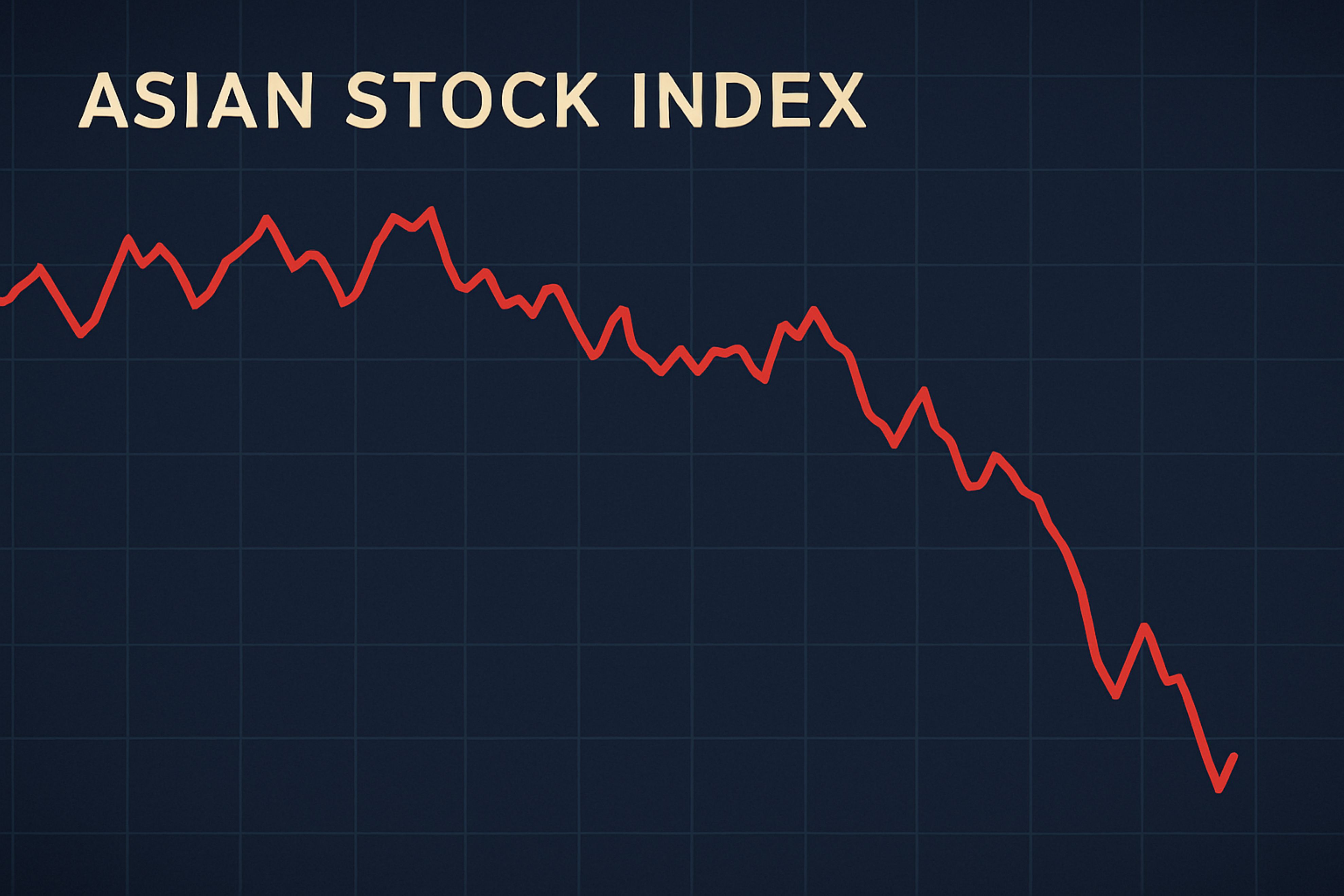Visa Stock Analysis: Is Visa a Strong Opportunity Ahead of Q4 Earnings?
$325.48
28 Jan 2026, 19:25

AI

Asian Stock Markets Plunge as Israel Strikes Iran
Heightened Middle East tensions and Trump’s tariff threats spark global sell-off and flight to safe havens
Markets in Asia Slide on Geopolitical Shock
Asian stock markets tumbled on Friday following Israeli airstrikes on Iran, sparking fears of a broader Middle East conflict and reigniting global risk aversion.
The Nikkei 225 in Japan dropped 1.2%, South Korea’s KOSPI slid 1.3%, and Hong Kong’s Hang Seng fell 0.8%. Traders across the region moved capital into safe-haven assets like gold and bonds.
Israel Targets Dozens of Sites in Iran
According to reports, Israel launched a large-scale aerial campaign early Friday, striking Iranian nuclear, missile, and military installations. The strikes were said to be in response to escalating threats, with Israeli cities activating emergency sirens amid fears of retaliatory drone or missile attacks.
US Secretary of State Marco Rubio said the operation was carried out independently by Israel under the justification of self-defence.
Oil and Growth Fears Rattle Investors
The attacks immediately raised concerns over:
Markets were already on edge due to inflationary pressures and ongoing global trade uncertainty, and this conflict has intensified the cautious mood among investors.
Regional Stock Indices Post Broad Losses
The fallout extended across Asia-Pacific markets:
These declines reflect a broad regional retreat from equities, with rising geopolitical tension prompting global investors to reduce risk exposure.
Trump’s Trade Threats Add to Market Fears
Adding to the turbulence, Donald Trump reignited trade tensions by warning that the US may soon raise auto tariffs.
The announcement came just one day after he declared a US-China trade deal “done,” creating further confusion in the markets.
Trump also stated he would send formal tariff notices to major US trading partners within two weeks, ahead of a 9 July deadline for finalising trade negotiations.
These threats further weighed on investor sentiment and compounded fears of a protectionist shift that could damage global trade flows.
Global Flight to Safety Accelerates
With volatility rising, there has been a clear rotation into defensive assets:
The market mood has turned decisively risk-off, and further escalation in the Middle East or mixed signals from Washington could prolong the instability.
What This Means for Investors in 2025
The sharp sell-off across Asia and growing fears of conflict-driven energy inflation may push investors to:
If Trump follows through with his trade threats and Middle East tensions persist, global markets could enter a period of heightened volatility and reduced appetite for risk assets.
Summary: Risk Rises, Markets Retreat
Investors are bracing for further turbulence as geopolitical shocks and protectionist rhetoric challenge market stability.
Sources: (Investing.com)